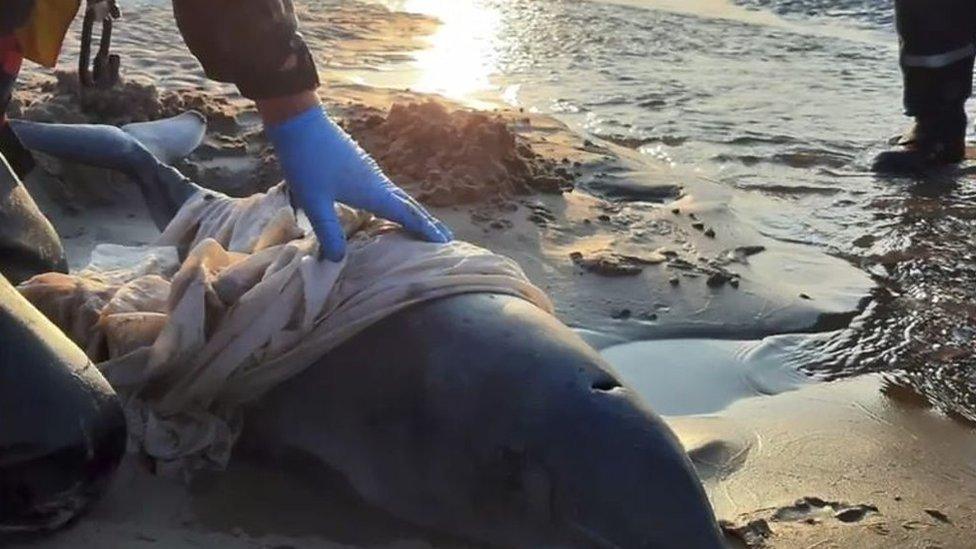Big rise in stranded dolphin numbers, say rescuers
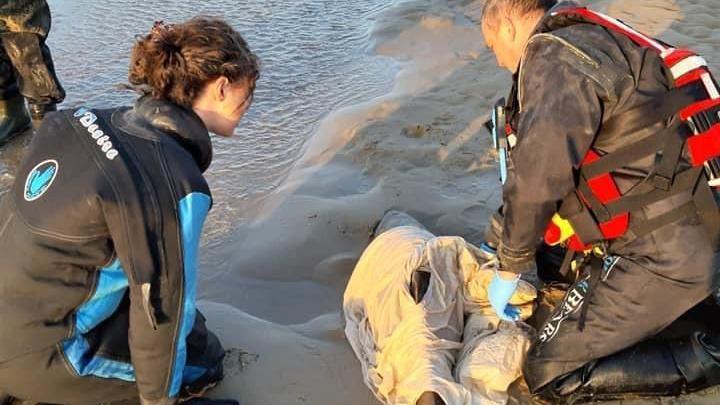
The British Divers Marine Life Rescue charity said it has never been busier
- Published
A marine life rescue charity said it has never before seen so many stranded dolphins and porpoises on beaches across Merseyside.
British Divers Marine Life Rescue "has never been busier" according to its staff, who provide medical care for beached animals until they can be safely released.
It is unclear whether the rise is linked to climate change affecting sea temperatures or simply due to people being more aware of how to report cases, the charity said.
The BBC spoke to staff based at New Brighton beach during a training exercise, using a water-filled replica porpoise.
Kristen Cureton said she had been a charity medic for seven-and-a-half years and in that time had seen the bulk of cases shift from rescuing seals to porpoise and dolphin.
"It's quite unusual in terms of the places they're stranding. In Liverpool Bay, here [New Brighton], in Leasowe Bay, we've never seen so many", she said.
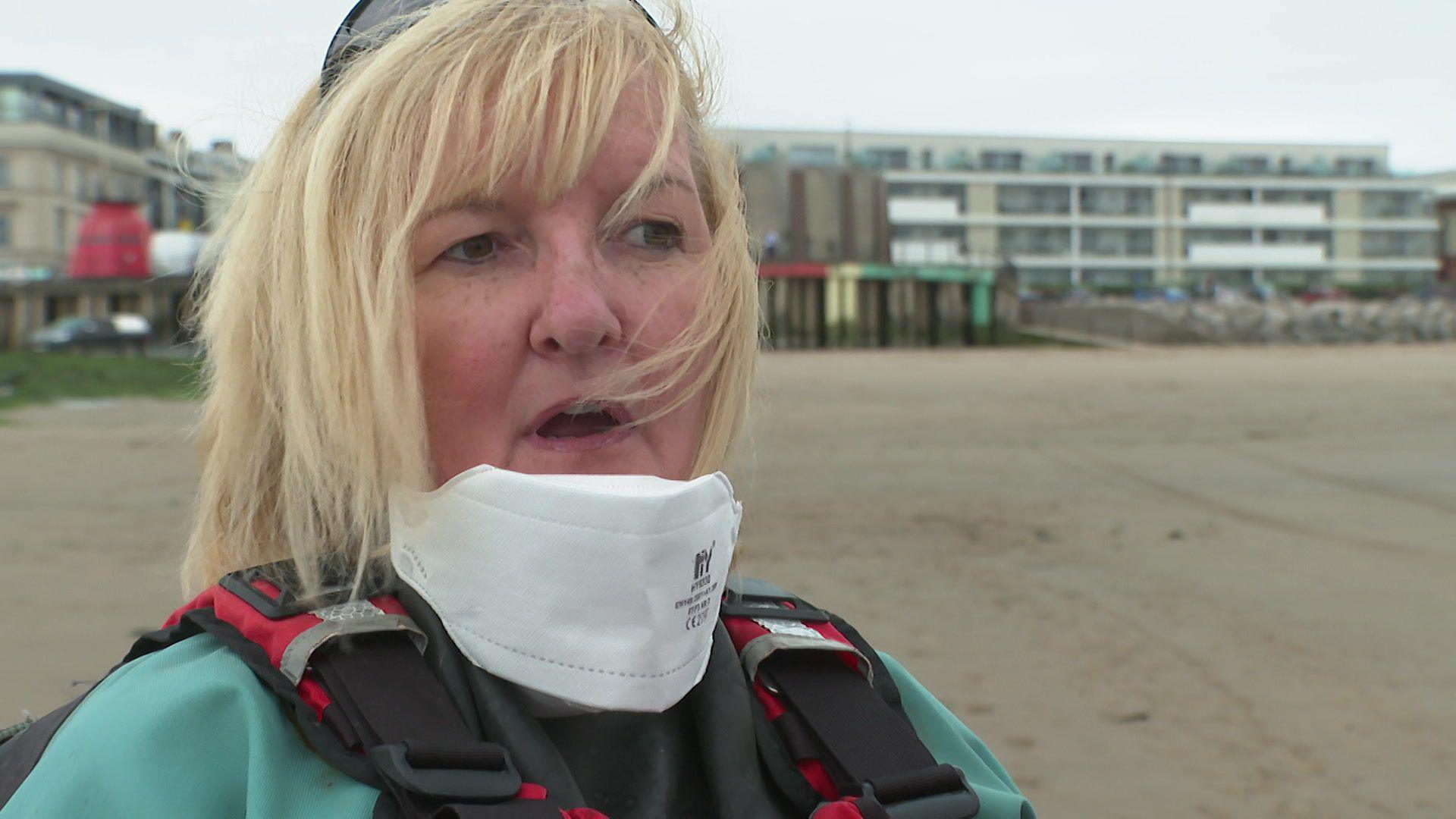
Medic Kristen Cureton said it was unclear why the number of strandings had appeared to increase
"There have always been porpoise washed up, the odd one or two, but not with the frequency that it's happening now."
Ms Cureton recalled a mother and calf that washed up at Halebank near Runcorn, requiring the help of the Royal National Lifeboat Institute and the Coastguard.
She said: "When they are out of the water the scavengers will peck at any hole, an eye, a blowhole, so when got to them they didn't look in very good condition.
"One had lost an eye, they had blood coming out of the blowhole, but they were well enough to be able to re-float."
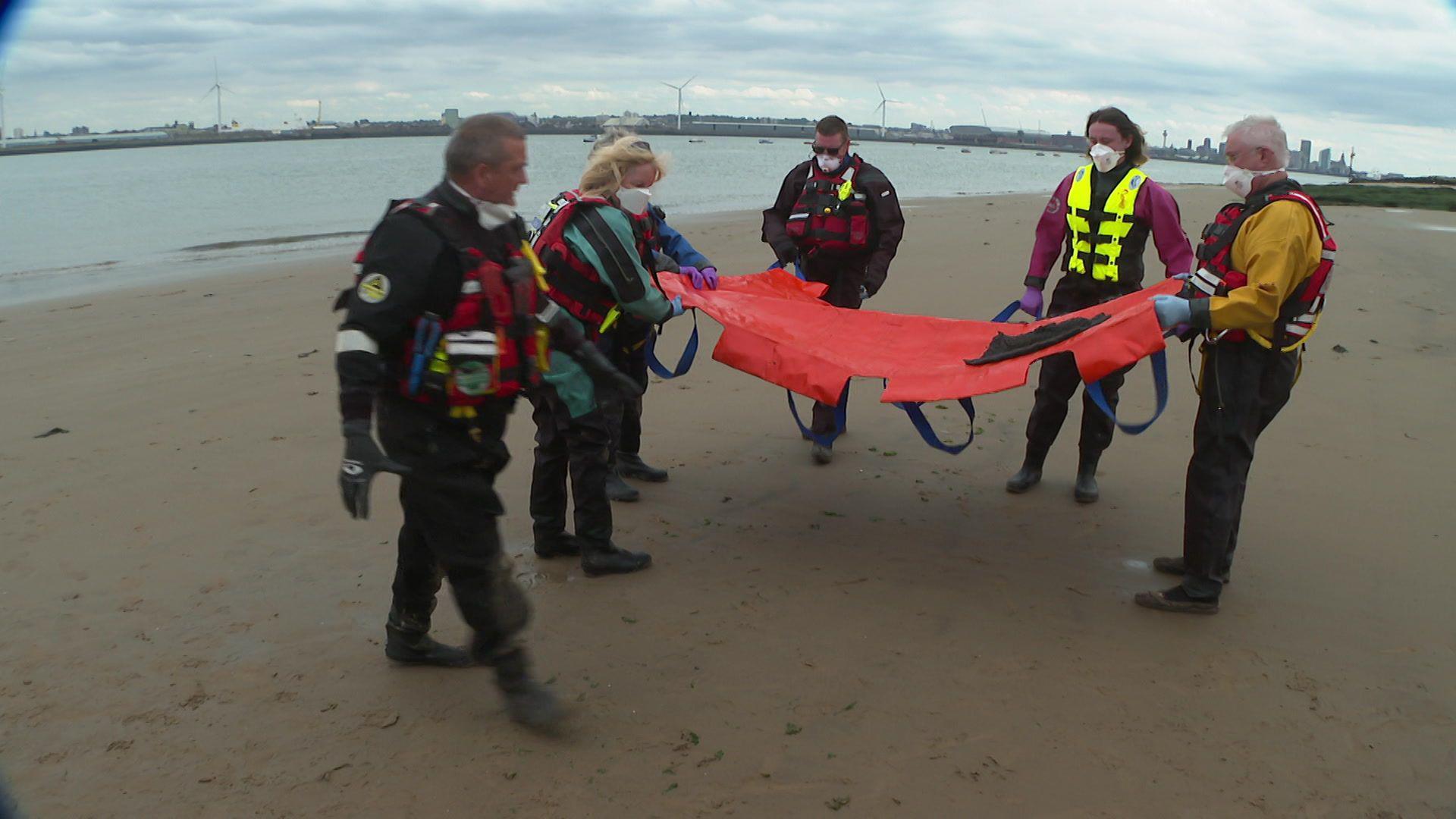
Volunteers training to re-float porpoises, dolphins and whales on New Brighton beach
She said the pair had thankfully been seen since the rescue and appeared to have recovered.
In most cases, stranded animals are first encountered by members of the public.
Chris Cureton, another member of the team, said anyone coming across a porpoise, dolphin or whale on the beach should contact the charity.
"They will give you any instructions that you might be able to do as a member of the public," he said.
"It might include keeping the animal cool, it might include righting the animal until the medical team get there, but they'll be quite specific in what they tell you.
"But what we would never expect anyone to do is re-float an animal on their own because you might damage the animal further and it might not be in the right condition to be re-floated."
British Divers Marine Life Rescue trains 1,000 volunteers per year and has 25 whale flotation pontoons at strategic locations across the UK.
Listen to the best of BBC Radio Merseyside on Sounds and follow BBC Merseyside on Facebook, external, X, external, and Instagram, external. You can also send story ideas to northwest.newsonline@bbc.co.uk, external
Related topics
More like this
- Published16 June 2024
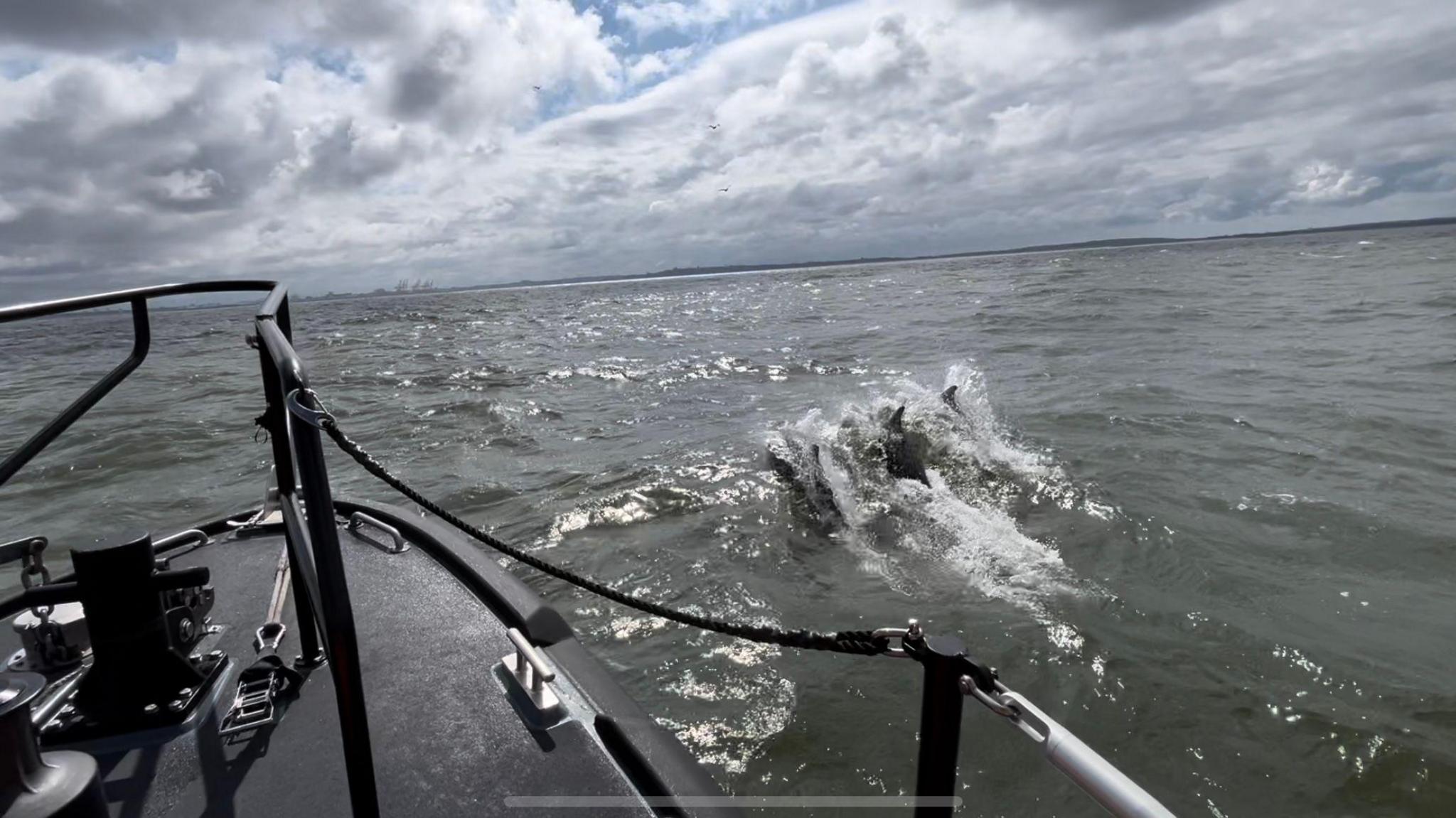
- Published10 April 2019
